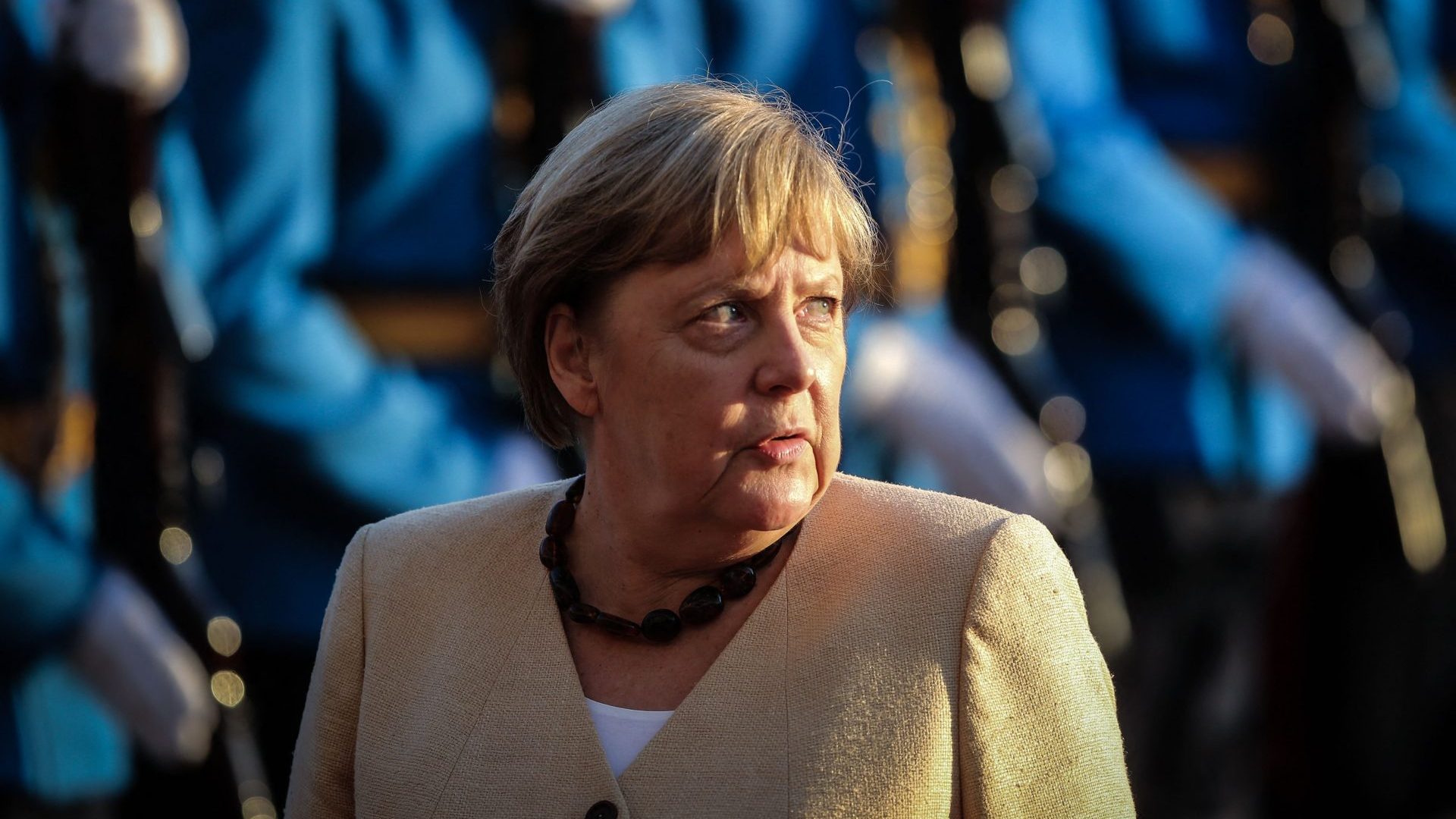Angela Merkel, the former chancellor of Germany, has said she felt “disappointed and abandoned” by Britain’s decision to leave the EU.
Speaking to The Rest is Politics, Merkel called Brexit “an incredible event from my point of view,” and conceded that “I hadn’t bargained for that. I would never have thought this possible”.
In a wide-ranging conversation on the podcast, Merkel focused on the role of David Cameron, prime minister in the leadup to Brexit. “I had actually the impression that he had delivered himself into the hands of those who were sceptical towards Europe,” said Merkel.
Merkel questioned the willingness of Leavers to take the referendum result as a broad mandate for change. “Maybe under different circumstances,” she said, of the referendum, “one might have thought it might be won” by the pro-EU side. “It was after all not a landslide win for the leavers.”
In the run up to the referendum of 2016, the British government held a series of negotiations with the EU, trying to win new concessions, in order to strengthen the positive case for continued British membership. The Conservative eurosceptics, she said, were “asking for more, for more, for more again all the way until the referendum.”
“Could one have done more?” Merkel asked, of that period of negotiations. “Well, it’s a question I ask myself time and time again. But I do think we actually tried to accommodate David Cameron at the time, and Britain.”
Merkel is ultimately sceptical of the idea that negotiations alone could ever have stopped Brexit. “It would never have been enough for those who simply didn’t want to be a member of the EU.”
“Yes, quite often the EU is very bureaucratic, which is why I was so sad about Britain leaving,” said Merkel. “I felt abandoned. Your country is such a great country. Also you’re globally important.”
“You’re part of Europe.”
In remarks about president Putin of Russia, Merkel, who was brought up in East Germany under Communism, said, “he didn’t know much about the economy, and so very quickly he resorted to restoring this strength with methods he had used as a KGB agent.”
“He doesn’t understand, or maybe he didn’t want to understand, what an enormous boon freedom can be – what enormous luck,” said Merkel. “He thought that any kind of democratisation movement, for example in Ukraine, the Orange Revolution, that this was influenced by the West.”
“He simply could not, or did not want, to envisage that people actually wish for that,” said Merkel. Blaming the west was, says Merkel, a tactic arising from the fact that “he needed an external opponent, in order to restore strength nationally and restore pride”.
“I think he thought he was the best person for Russia. He believed that.”
One of the most controversial policies of Merkel’s time in office was her decision to take in large numbers of refugees from the middle east during the Syrian civil war. Merkel said “you had these refugees there. They were along the German border, on Union territory.”
“I knew it’s not always so popular to receive so many refugees. But we have a set of values do we not?”
“In Britain I know this is a big issue too.”
Reflecting on Donald Trump’s first administration, Merkel recalled that Trump’s inner team “don’t like multilateralism that much. They are more transactional.”
Trump, she says, “does know that cooperation, in particular with the European Union and Nato is not only good for us, but also good for the US”.
“Anything else would not be good for the US. He wants the US to be great and the trans-Atlantic partnership makes America also greater. They say we are the only beneficiaries – but that’s not true.”









